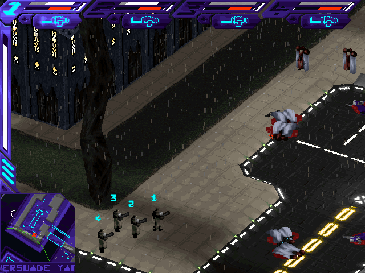 |
| Image Source |
Being a fan of Abandonware, that is, games that have fallen
out of copy-right or sale and so they can be distributed for free, I
have often been made aware of the matters of content and container. Most basically,
to run many old games from the early 90s or late 80s, one must often use Dos
emulator like Dos-box that will simulate the environment of a period computer.
However, some games exist on the edge of the Ms-Dos age and
can occasionally be coaxed to work with more modern windows systems without
augmentation, but in so doing they will sometimes display curious attributes
that reveal basic design assumptions at the time of the game. One specific
example was booting up a copy of the original Syndicate Wars game, a cyber-punk
tactical isometric shooter. Certain aspects like the animations and the speeds
of some transitions in the game behave impossibly sped up because the game is
not used to such high processing speeds from the CPU.
This is interesting because one is immediately made aware of
just how much hardware and software interplay to make a thing like a computer
game possible. Far more them the computer simply being a facilitator of the game
engine, the computer also constitutes part of the construction of game environment
and its qualities, the two are inseparable.
It’s these sorts of thing which make such obvious ‘virtual containers’
like Dos-Box are required to allow old games to be enjoyed today at all.
This is a definite issue where present computers are not formatted to be user friendly to older games. Hence why there is still a well preserved and working Dell PC from the 90's in my household. Glad you brought this up! - Raquel
ReplyDelete